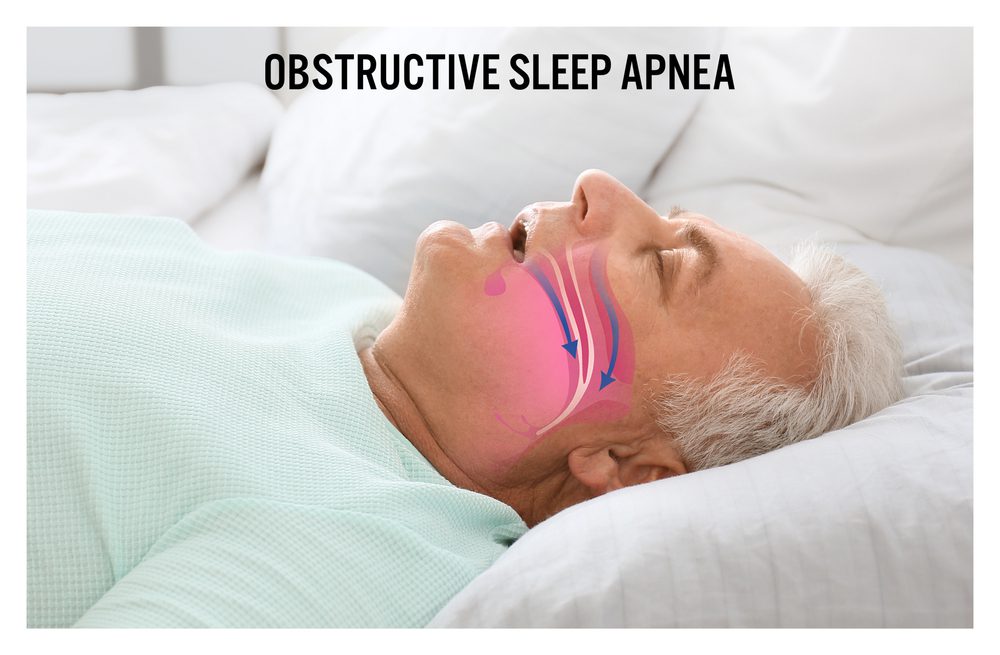
How sleep apnea will disrupt your sleep cycle
Your brain is continuously monitoring your body’s status and is also adjusting your blood pressure, heart rate, breathing, and so on. Your blood oxygen levels may decline when you stop breathing because of either hypopnea or apnea. Let’s break it down:
- Hypopnea: “Hypo” and “pnea,” which are two other Greek words, mean: “low” or “under.” Merging these root words means “under-breathing,” indicating that you’re not breathing enough to maintain healthy oxygen levels in your blood. As we mentioned before, your brain reacts to blood oxygen declines, from either apnea or hypopnea, by activating a failsafe-like reflex, waking you up enough for you to breathe again. Once you resume breathing, your brain automatically attempts to restart your sleep cycle.
- Apnea: This is when you stop breathing entirely while sleeping or have virtually no airflow. The Greek roots combined here are: “a,” which means “not,” and “pnea,” which refers to breathing. Merged, it means “breathless.”
The more intense your sleep apnea is, the more frequently these interruptions happen. The apnea/hypopnea index (AHI) is the average hourly number of times when a person stops breathing throughout their sleep cycle.
The AHI is the main factor that determines the severity of your case. The intensity is as follows:
- Mild sleep apnea: This level means an individual has an AHI between 5 and 15. But, specialists also assess the symptoms at this level. If you don’t have any other symptoms, they might not regard it as severe enough to treat.
- Moderate sleep apnea: Individuals with moderate sleep apnea have anywhere between 15 and 29 events per hour. That means you sleep eight hours, and within those hours, you stop breathing and/or wake up between 120 and 239 times.
- Severe sleep apnea: If your sleep apnea is this severe, this means you wake up 30 or more times in a single hour. Throughout the night, you stop breathing and/or wake up 240 times or more.
These obstructive events can affect any stage of sleep. They’re most common in Stage 1, Stage 2, and REM sleep. That’s why it’s likely that people won’t remember the events, which means they might not be aware that they have an issue until the symptoms are noticeable.






